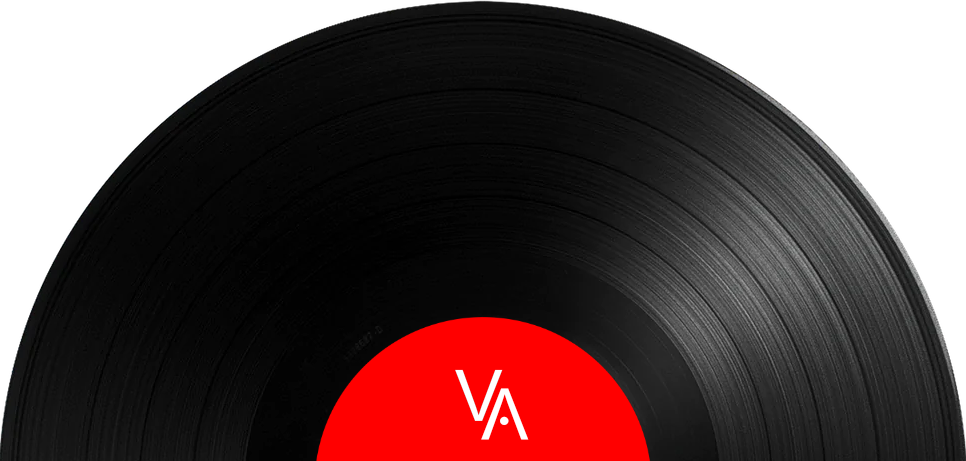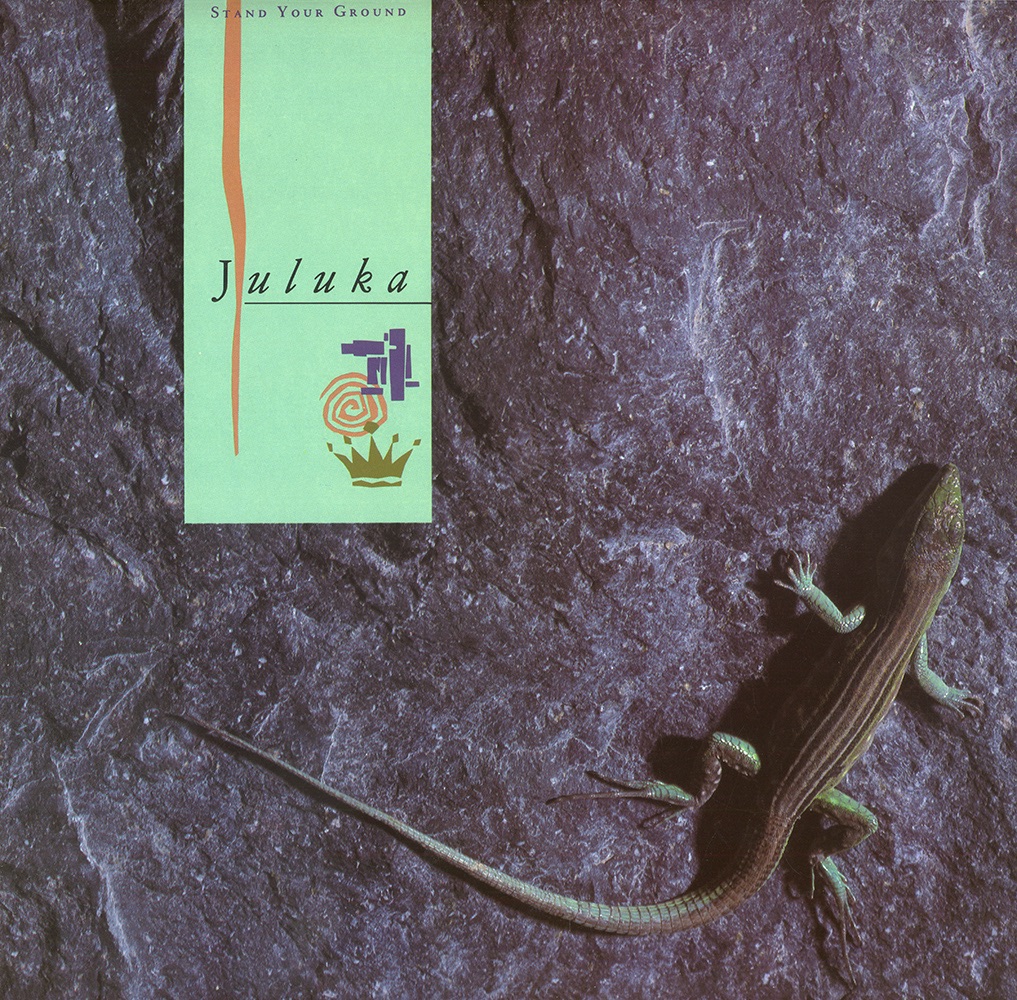
I was lucky enough to see Juluka - literal translation: sweat - back in 1984, at Massey Hall, in Toronto. It was an incredible show, performed by an incredible band that was, probably more than almost any other band, a product of its time and environment. I don’t think they stayed together much longer, so I really was lucky to have seen them and I’m so glad I did.
In South Africa, where they are from, they were initially illegal, as white South Africans were prohibited from congregating with black South Africans and this was a bi-racial band singing about apartheid, which was still in full swing. They were a thorn in government’s side and were even considered to be dangerous – but they didn’t let that stop them.
There are some truly stellar moments within these grooves, such as Fever, December African Rain, Look In The Mirror and Mana Lapho (Stand Your Ground). The only song on the album that I really don’t like is Work For All, and I feel a little guilty for feeling that way considering the message the song is meant to deliver. But it’s a clunker as a song. Take it off this recording and you'd have an almost perfect slab of vinyl.
I haven’t played this record in a couple of decades, probably because of the odd taste that one song left in my ears last time round. But it’s been long enough that I’d forgotten some of the truly brilliant bits, and when I finally put the record back on the turntable they snuck up on me as though I was hearing them for the first time. A great record all around – well, almost.
The album contains 10 songs: four new ones and six that were previously released on the 1983 LP, Work For All.
In South Africa and Zimbabwe an alternate version of the record was released called The International Tracks, a seven-track EP wth the same cover art and the same new songs but with two new remixes and one re-issued track, Umbaqanga Music, from the wonderful 1982 album, Scatterlings Of Africa.
The title Stand Your Ground is a translation of the Zulu title of the song, Mana Lapho, which appears on the album.
Juluka's roots date back to when a 14-year-old Johnny Clegg met Zulu street musician Charlie Mzila, who taught him Zulu music and dancing. In 1969 Clegg and South African musician, Mchunu, met in Johannesburg, where Mchunu had gone to find work. Mchunu challenged Clegg to a guitar contest and the two became friends and were soon performing together, even though it wasn't legal under South African law. Their success came from word of mouth, and Clegg was arrested and beaten up by the police on several occasions, mostly because of his lyrics, which were strongly anti-apartheid.
In 1981 the band released a second LP, African Litany, and the lead single, Impi - with its political lyrics about a defeat of the colonial British army by the Zulus at the Battle of Isandlwana - was banned by South African radio. The album garnered international attention and a tour of Europe and North America followed. That's when I got to see them.
The group disbanded in 1985 when Mchunu moved back to the farm where he was born, in Natal, to take care of his family. Clegg went on to form a new band, Savuka, with whom he achieved even greater international success. I liked Juluka better than Savuka, who re-recorded one of Juluka's songs - Scatterlings Of Africa - although Juluka's version is far superior, IMHO.
In 1997, the two friends reunited and recorded one more album together, but it failed to receive the critical acclaim of early Juluka albums.
I was lucky enough to see Juluka - literal translation: sweat - back in 1984, at Massey Hall, in Toronto. It was an incredible show, performed by an incredible band that was, probably more than almost any other band, a product of its time and environment. I don’t think they stayed together much longer, so I really was lucky to have seen them and I’m so glad I did.
In South Africa, where they are from, they were initially illegal, as white South Africans were prohibited from congregating with black South Africans and this was a bi-racial band singing about apartheid, which was still in full swing. They were a thorn in government’s side and were even considered to be dangerous – but they didn’t let that stop them.
There are some truly stellar moments within these grooves, such as Fever, December African Rain, Look In The Mirror and Mana Lapho (Stand Your Ground). The only song on the album that I really don’t like is Work For All, and I feel a little guilty for feeling that way considering the message the song is meant to deliver. But it’s a clunker as a song. Take it off this recording and you'd have an almost perfect slab of vinyl.
I haven’t played this record in a couple of decades, probably because of the odd taste that one song left in my ears last time round. But it’s been long enough that I’d forgotten some of the truly brilliant bits, and when I finally put the record back on the turntable they snuck up on me as though I was hearing them for the first time. A great record all around – well, almost.
The album contains 10 songs: four new ones and six that were previously released on the 1983 LP, Work For All.
In South Africa and Zimbabwe an alternate version of the record was released called The International Tracks, a seven-track EP wth the same cover art and the same new songs but with two new remixes and one re-issued track, Umbaqanga Music, from the wonderful 1982 album, Scatterlings Of Africa.
The title Stand Your Ground is a translation of the Zulu title of the song, Mana Lapho, which appears on the album.
Juluka's roots date back to when a 14-year-old Johnny Clegg met Zulu street musician Charlie Mzila, who taught him Zulu music and dancing. In 1969 Clegg and South African musician, Mchunu, met in Johannesburg, where Mchunu had gone to find work. Mchunu challenged Clegg to a guitar contest and the two became friends and were soon performing together, even though it wasn't legal under South African law. Their success came from word of mouth, and Clegg was arrested and beaten up by the police on several occasions, mostly because of his lyrics, which were strongly anti-apartheid.
In 1981 the band released a second LP, African Litany, and the lead single, Impi - with its political lyrics about a defeat of the colonial British army by the Zulus at the Battle of Isandlwana - was banned by South African radio. The album garnered international attention and a tour of Europe and North America followed. That's when I got to see them.
The group disbanded in 1985 when Mchunu moved back to the farm where he was born, in Natal, to take care of his family. Clegg went on to form a new band, Savuka, with whom he achieved even greater international success. I liked Juluka better than Savuka, who re-recorded one of Juluka's songs - Scatterlings Of Africa - although Juluka's version is far superior, IMHO.
In 1997, the two friends reunited and recorded one more album together, but it failed to receive the critical acclaim of early Juluka albums.


